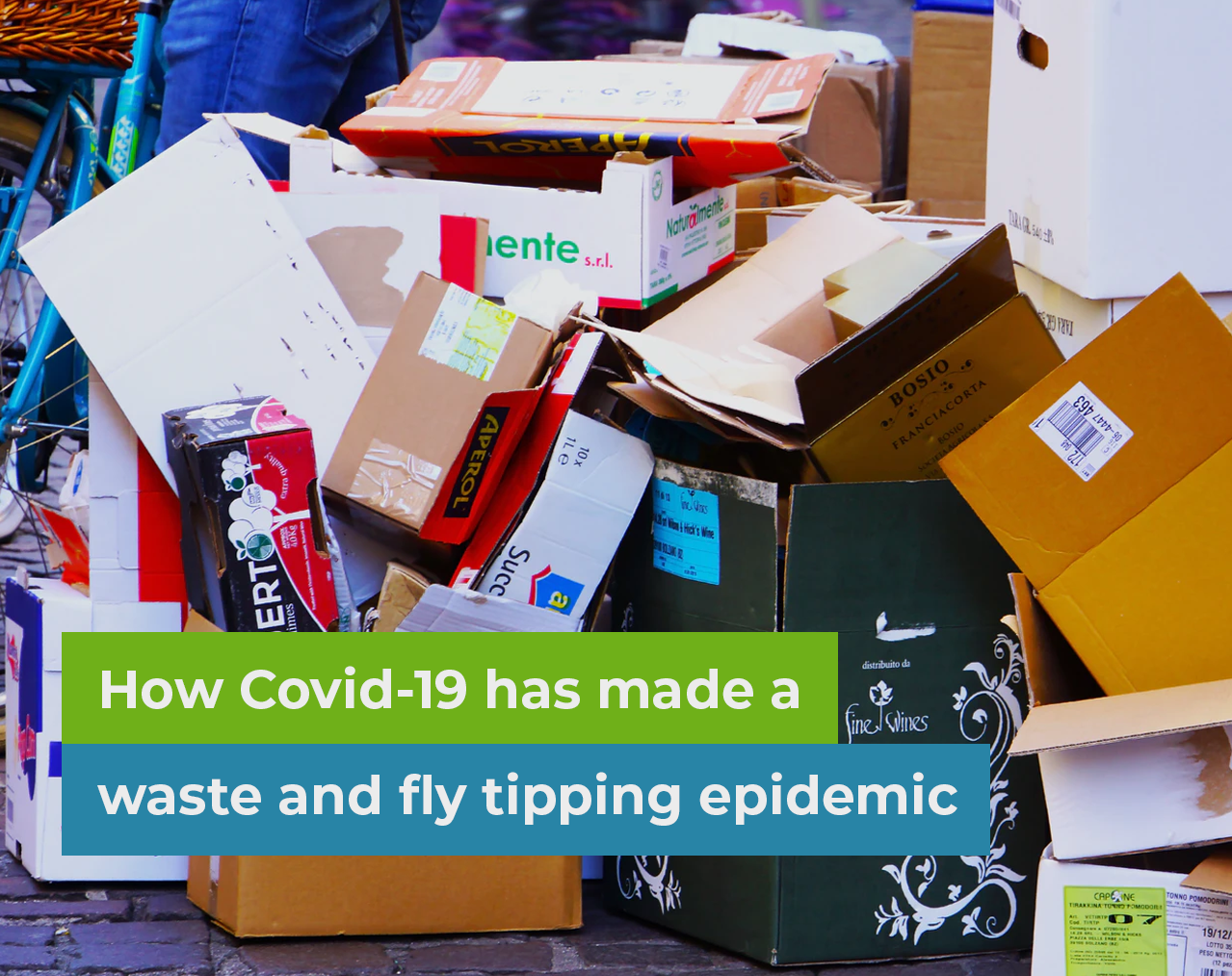
How Covid-19 has made a waste and fly tipping epidemic
Do you remember the advertising phrase, ‘Keep Britain Tidy? It was used by the government as part of its drive to stop people fly-tipping and dropping litter. Over the years, it’s had some effect. But since the start of the Covid-19 pandemic, the situation has changed. And the UK has sadly fallen siege to a fly-tipping epidemic.
What is fly tipping?
Otherwise known as the dumping of rubbish onto public land, fly-tipping has long been a UK problem. But since lockdown, some UK areas have seen an incredible 300% increase in the number of incidents.
This has presented a huge problem for local authorities. Because if it falls onto public land, they have a legal duty to remove it.
The problem it creates
The waste is often a mixture of household waste and electrical goods. Additionally, sometimes there’s contaminated cardboard mixed with builder’s waste. As well as any other unsavoury material that you can think of.
Ultimately, there are no rules with fly-tipping. It can be made up of anything. Given all the requirements with modern recycling, authorities have faced a huge problem.
After all, cardboard needs to be separated from household and builders’ waste. But then there’s the pick-up cost associated. And the risk to public health presented when dumped near a school or on a public road.
The broken window theory
Another danger is the broken window theory. This is a theory present in criminology that concerns the environment. Put simply, it states visible signs of anti-social behaviour create more anti-social behaviour. This is following experiments in neighbourhoods where broken windows were left unrepaired.
The results demonstrated a quick deterioration in standards. And the same effect has been found with fly-tipping. Once one person starts, more people begin to think it’s OK to dump their waste on the street.
How Covid has contributed to the problem
Unfortunately, Covid-19 has had a huge impact on the council’s ability to collect waste. Large portions of the workforce have been off sick or are self-isolating. Additionally, they may have had to take time off to look after their children. Or care for someone who has the disease.
Then there’s the new health and safety regulations to contend with. It’s almost impossible for councils to operate crews and keep distanced at the same time. And such regulations are affecting all areas of waste collection, sorting, and disposal.
Meanwhile, with all the issues faced by the NHS, it’s been a challenge to get all the PPE required. As a result, most councils have reduced waste collection to essential services only.
The problem has been compounded because bulky waste collections have stopped. Even worse, most household waste recycling centres have also closed. Given over 60 million people have been stuck at home, it’s created a negative feedback loop.
The perfect storm
Bored and housebound, UK residents have resorted to tidying, gardening, and doing DIY. Of course, these activities generate a lot of waste. Residents then place their waste for collection. But then they see it’s not collected.
The reason for this is that building waste contaminates the compactors. But this isn’t always communicated. And that’s when the panic begins.
Waste backs up as they wait for the next week, but of course, this presents a health risk. Residents take the waste to the tip, only to find the collection centres closed. Worse, any recycled items can’t be collected either because those centres have been closed, too.
Off work, facing rising bills and reducing incomes, many people take evasive action. The reasoning appears to be ‘why live with this? Especially if it will get collected when I dump it on the road?’
Of course, it’s the council’s statutory duty to remove it. But as we’ve seen above, the council hasn’t been able to do it. It’s an overused phrase, but the situation has been unprecedented.
The other option might seem better, but ultimately, it makes little difference. Some residents employ independent contractors to remove their waste. However, they fail to check the trade waste licences of these companies.
Many of these companies are out to make a quick buck before dumping the waste illegally. They don’t want to pay any recycling or incinerator fees and keep all the money for themselves.
Is the council the problem too?
Some people argue that councils don’t help. They can take between twenty and forty minutes to pick up a call. And when they do pick up, their call agents aren’t always helpful.
Bulky waste might not be collected. Or they issue a charge to remove it. And then there’s the various rules and stipulations to contend with.
Of course, rules are needed with recycling. But it’s easy to see how unresponsive call times and unhelpful call handlers can put people off.
As we’ve seen, councils have faced funding pressures. Plus, unprecedented challenges that have made it nearly impossible to operate. The result has been the epidemic in fly-tipping.
Let ECO be the answer
What’s needed is for a flexible waste disposal firm to respond to needs in a clear and helpful way. At ECO, we’re part of the solution. We can come out when and where you need. Or you can bring your cardboard to us, whenever you want. Please visit our website for more details.
